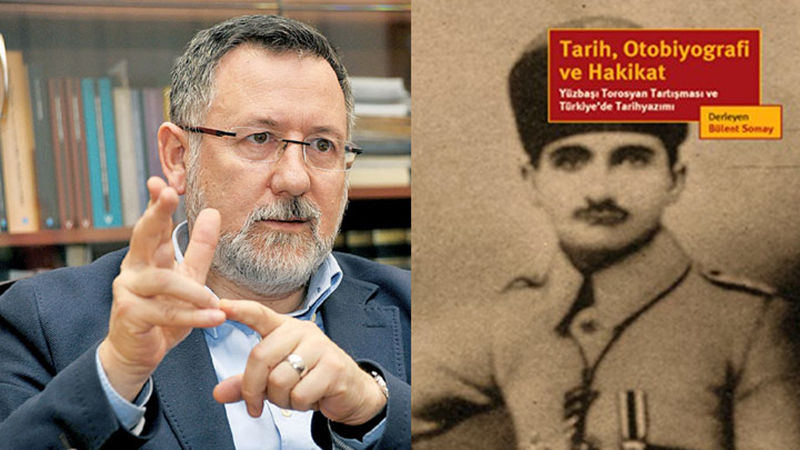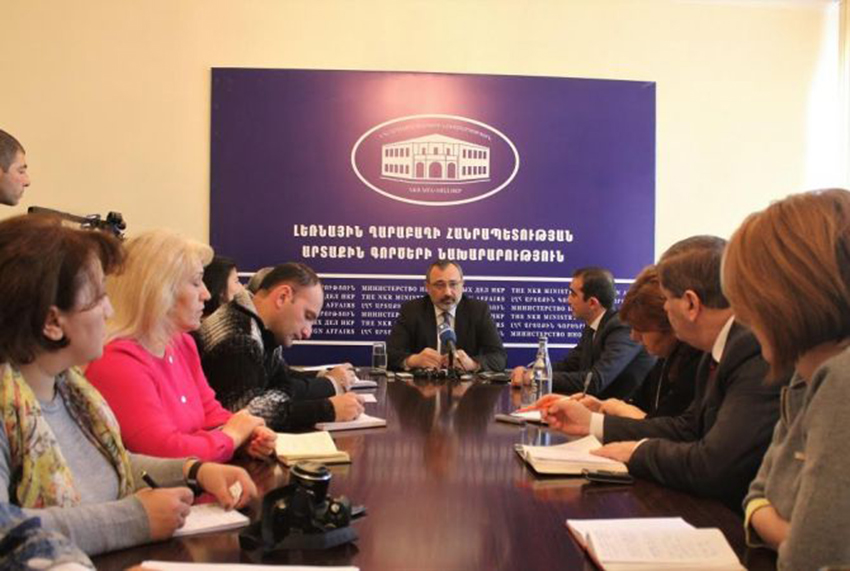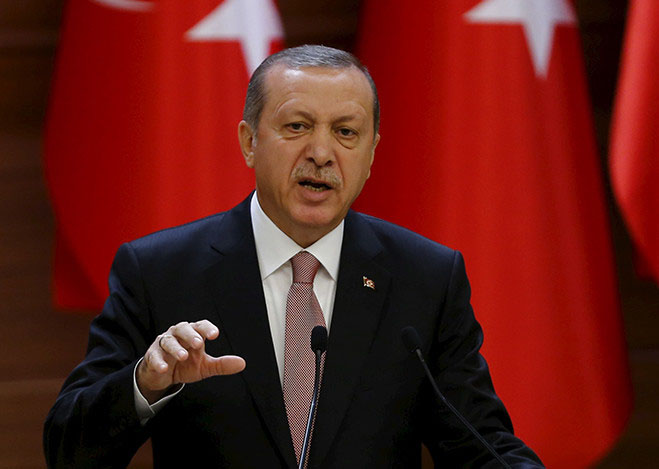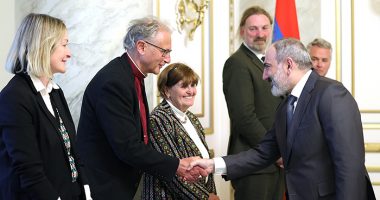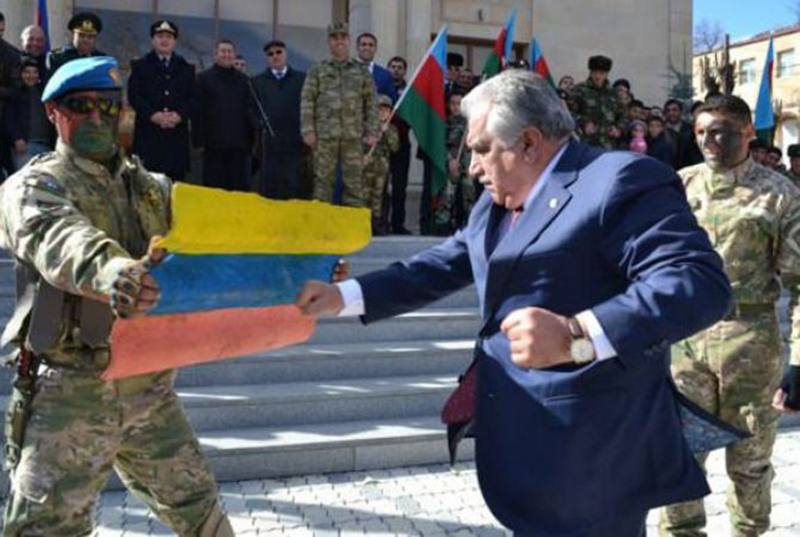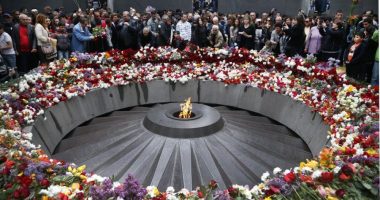By Hambersom Aghbashian
Professor Suavi Aydin (born 1962,in Ankara ), is a Turkish Anthropologist. He graduated from Hacettepe University School of Sociology in 1986, then earned his MA in sociology from the same department and his PhD degree in Anthropology from the same University. He served as associate Prof. of Anthropology at Hacettepe University till 2005 and became a full Prof. in Communication Sciences at Hacettepe University in 2010, and the Dean of the Communication Sciences Department-Hacettepe University in 2011. His fields of interest are ethnicity, nationalism, state problematic, etc. He has been working in the field of local history and the settlement date. Professor Suavi Aydin has many published works, including “Modernization and Nationalism” (1993), “The Problem of Identity, Nationality and the Turkish Identity” (1998), “Mardin: tribal, community, State” (2000), Anthropology Dictionary (2003), etc.. Professor Aydin was a member of UNESCO’s Cultural Corridor Trade Committee (2008-2010) and since 2010 he is UNESCO’s Intercultural Dialogue Specialized Committee Member. Also he is a member of the Economic and Social History Foundation of Turkey.
In December 2008, two hundred prominent Turkish intellectuals released an apology for the “great catastrophe of 1915”. This was a clear reference to the Armenian Genocide, a term still too sensitive to use so openly. The signatories also announced a website related to this apology, and called on others to visit the site and sign the apology as well. The complete, brief text of the apology says “My conscience does not accept the insensitivity showed to and the denial of the Great Catastrophe that the Ottoman Armenians were subjected to in 1915. I reject this injustice and for my share, I empathize with the feelings and pain of my Armenian brothers and sisters. I apologize to them.” Suavi Aydin was one of the intellectual who signed the petition which in few days was signed by over 13,000 signatories. (1)
Hrant Dink Foundation organized a conference entitled “The Social and Economic History of Mardin and the Region” in Mardin on November 2-3, 2012 co-sponsored by Mardin Chamber of Physicians, Mardin Law Society, KAMER Mardin Office, Mardin Film Society and Tur Abdin Syriac Culture and Solidarity Association. The aim of the meeting was to look at the social and economic development of Mardin and its environs between 1838 and 1938. The genocide perpetrated against the Christian population of the region in 1915 was also discussed extensively. It was said that being able to talk about these issues in Mardin was already a big achievement as it would have been impossible to have such a meeting in the past. The two-day meeting was organized in five sessions, each one covering much of the neglected, and often denied, history of the region: “A General Panorama of Mardin and its Surroundings”, “Ethnic Diversity”, “Third Party Intervention and Emerging Nationalisms”, “Violence, Pogrom and Genocide”, “Post-traumatic Survival.” The participants included well-known academics from abroad, such as David Gaunt, Eden Naby, Michael Abdalla, Andrew Palmer, Nineb Lamassu, Martin Tamcke, Naures Atto, Ara Sarafian, Hilmar Kaiser, Raymond Kevorkian, Ishkhan Chiftjian and Aryo Makko, as well as scholars from Turkey, such as Fusun Alioglu, Osman Koker, Elcin Macar, Ayse Gul Altinay, and Suavi Aydin. (2)
On November 20 and 21, 2015, the Hrant Dink Foundation in Istanbul held the latest in a series of groundbreaking historical conferences. The 2015 edition was entitled ‘A Civilization Destroyed: The Wealth of Non-Muslims in the Late Ottoman Period and the Early Republican Era’. The conference organized in cooperation with Bogazici University, Istanbul Bilgi University and Sabanci University was held with broad participation at Bogazici University, Albert Long Hall. The history of expropriation and destruction of the wealth of non-Muslims through policies of annihilation of minorities and Turkification in the Late Ottoman and Early Republican Period was explored with an interdisciplinary perspective. A total of 27 papers were presented at the meeting which was attended by 29 scientific researchers from 11 countries. Prof. Suavi Aydın chaired the last panel which was titled ‘Cultural Losses’ and where Ümit Eser, Francesca Penoni, Fırat Güllü and Stefani Kundakjian presented their papers. (3)
“History, Autobiography and Truth” is a Historiography book compiled by Bülent Somay, and the writers are Taner Akcam, Ayhan Aktar, Suavi Aydin, Ohannes Kılıçdağı, Bulent Somay, Hero Şakul and it is published by Istanbul Bilgi University. The book contains collected articles on the subject of the debate concerning the publication of the Turkish translation of the memoirs of Sarkis Torossian (1891-1954), author of the book “From Dardanelles to Palestine a True Story of Five Fronts Battle of Turkey and Her Allies”- (Boston, 1947). (4) Sarkis Torossian was a high ranked army officer in the Ottoman army and was defending the Ottoman lands in Dardanelles. When he came back home, he discovered that his family members were deported with other families as part of Ottoman’s plan of deporting all Armenians, a plan which led to the Armenian Genocide.
1- http://www.armeniapedia.org/wiki/200_prominent_Turks_apologize_for_great_catastrophe_of_1915
2- http://www.gomidas.org/press/show/13
3- http://europeofdiasporas.eu/ideas/conference-civilization-destroyed
4- http://www.librabooks.com.tr/books/tarih-otobiyografi-ve-hakikat-yuzbasi-torosyan-

